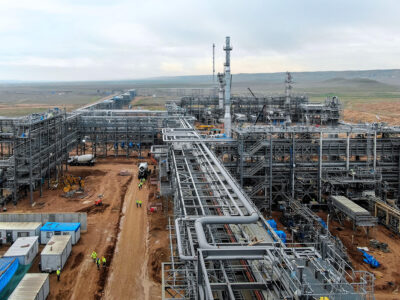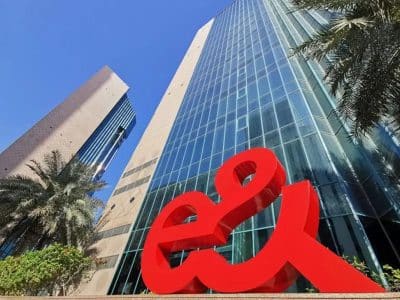Businesses around the world remain concerned about the impacts of energy security and prices, which could be a catalyst for a range of environmental, social and economic ripple effects, the latest research showed.
An overwhelming majority – 92 percent to be precise – of the business leaders surveyed in 10 markets around the world across sizes and sectors, including the UAE, felt that the continuing instability of energy is threatening their profitability and competitiveness.
“Energy costs and insecurity are having a significant impact on the workforce with decreased investment in employees,” the ABB Electrification’s Energy Insights survey said.
Business leaders are also concerned about potential impacts of meeting their sustainability targets due to volatile energy supply and prices.
Loay Dajani, Managing Director – electrification, Middle East and Africa, ABB said as the UAE prepares to host COP28, this survey underscores the critical importance of prioritising sustainable energy practices for businesses in the region.
“By recognising the impact of energy concerns on competitiveness, the workforce, and decarbonisation efforts, companies can take proactive steps towards a more sustainable future that supports economic growth and environmental preservation,” Dajani said.
He also said the research findings emphasize the urgent need for collective action to address these challenges and accelerate the transition to a sustainable, low-carbon future.

Restricting business investment and growth
Rising energy costs and insecurity are forcing business leaders to rethink how they operate and where they invest in their businesses, to grow and remain competitive, the research said.
The key impacts on businesses due to rising energy costs in the last year include lower profit margins (34 percent) and cuts to spending in some areas (34 percent), leading to a shift away from investment in R&D and other business growth initiatives.
Over a third (38 percent) have or plan to reduce technology investment, while a third (33 percent) expect to cut spending on infrastructure and 31 percent foresee a decline in marketing spend.
Impact on employees
Businesses say they have reduced investment in their workforce in the last year because of increased energy costs and the need to implement mitigation measures.
This is expected to continue over the next three to five years if energy challenges persist, the research said.
Three of the top five business areas highlighted for budget reductions are related to the workforce: 42 percent will spend less on recruitment; 38 percent will decrease spending on salaries, overtime and bonuses; and 37 percent will reduce investment in staff training and development.
Delaying decarbonisation
Respondents further cited concerns that energy pricing and insecurity could delay progress on climate change, with meeting carbon reduction commitments currently considered less of a priority than reducing energy costs.
Over half (58 percent) of business leaders surveyed said the cost of energy could delay achieving their sustainability and carbon reduction targets by anywhere from one to five years.
While reducing energy costs is the top priority for 61 percent of companies, only 40 percent currently have reducing carbon emissions within their overall business priorities.








